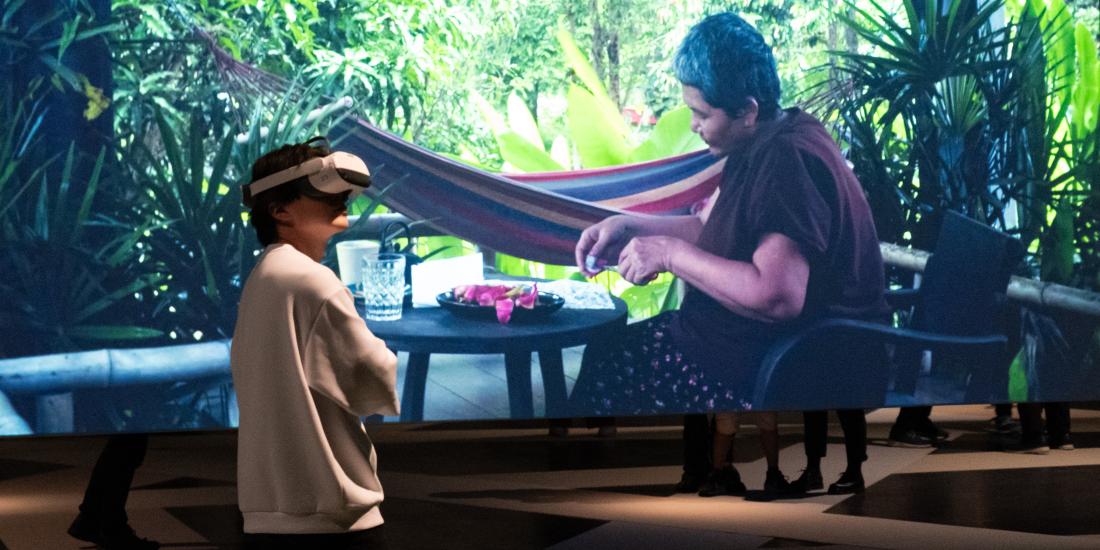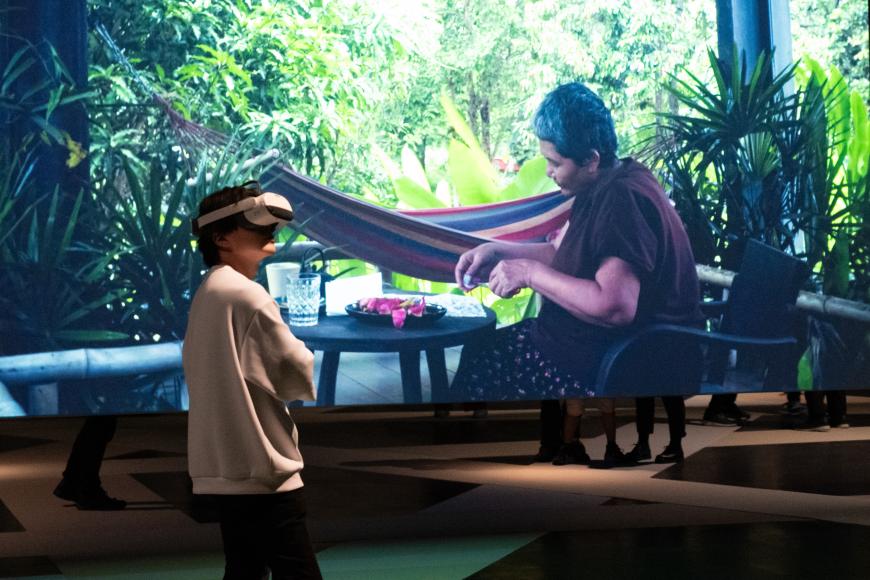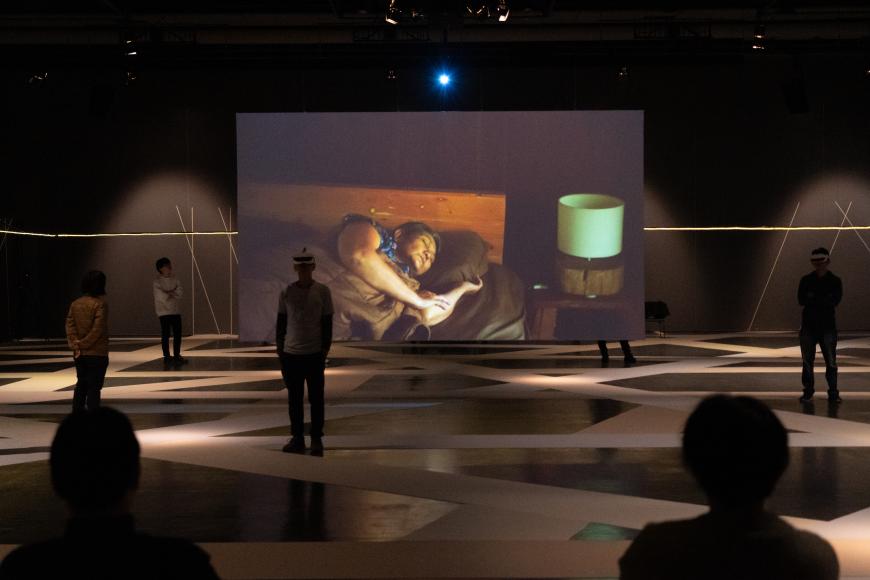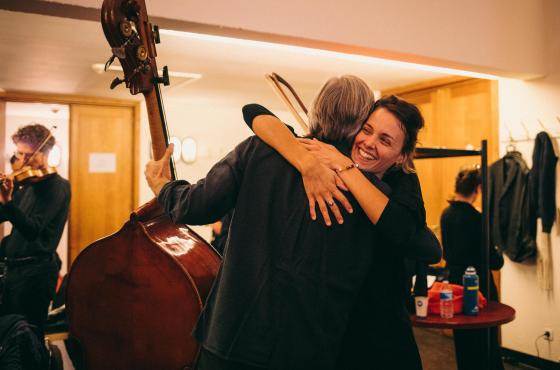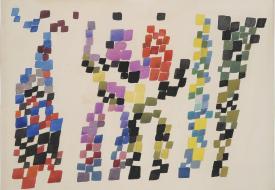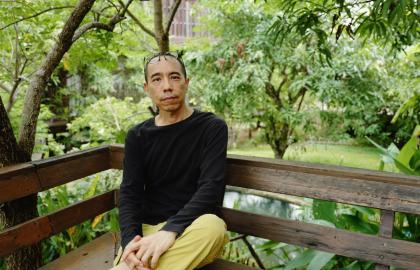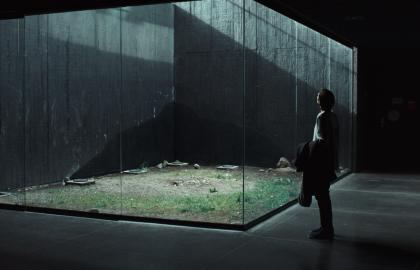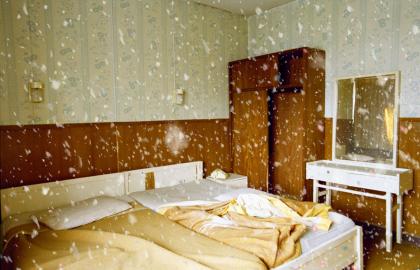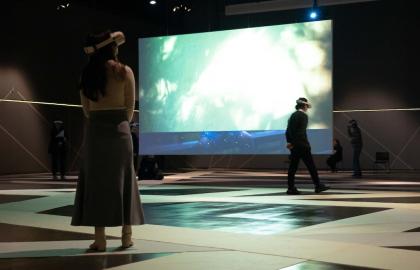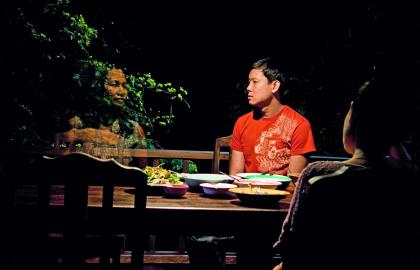Apichatpong Weerasethakul is known for his contemplative films set against the backdrop of Northeast Thailand. His visually stunning and internationally acclaimed work is haunted by both human and non-human beings, which are part of an expanded space-time. His films blend ancient legends with personal memories, and anecdotes about past lives with topical issues.
Weerasethakul has long been making his mark on film history with masterpieces such as Tropical Malady(2004, Jury Prize at Cannes), Uncle Boonmee Who Can Recall His Past Lives (2010, Golden Palm at Cannes) and Memoria (2021, Jury Prize at Cannes). Commissioned by the Aichi Triennale 2022, and working with Japanese artists, he created A Conversation with the Sun – an experimental performance that marks the director’s first foray into Virtual Reality (VR).
“I’m thrilled with what we’ve achieved,” Weerasethakul says from Chiang Mai in Thailand, where he has lived for fifteen years with his two dogs. Thailand is politically unstable, says the film-maker. “But I’m attracted to disorganisation, and chance.”
Is this what prompted you to start working with VR?
Apichatpong Weerasethakul: “Honestly: I thought VR would take cinema to another place, that it would propel its future. That was my motivation for embarking on this project. But I think I was wrong. In the end, it turns out that VR is more of a mixture of theatre and cinema, blurring the lines between reality and illusion. It’s a different animal, another language. Cinema creates something linear. You can use close-ups, panning and all kinds of camera movements to steer the audience’s emotions. But in VR you are very open, there is no frame. Working with VR, I was often reminded of the impermanence and interconnectedness of things. It mirrors the idea of Buddhism, something that obviously fascinates me.”
So VR didn’t open up any new horizons for you as a film-maker?
Weerasethakul: “I don’t think so, no. But it did make me start thinking more about cinema. About how limited and intimate it is as a medium. Framing, movement, sound, it’s all very subjective, very controlled. When you make films, you’re forcing the audience to watch. You present a frame through which people have to look. While people consider VR to be immersive, cinema can possess you more.
So VR is more ...
Weerasethakul: “Like life! VR is active, whilst cinema is physically passive. Like dreaming. VR is about freedom. When you see the open VR frame, you have the scope to look not only at the characters, but also at the trees, the actions. VR is also more like theatre in that respect. Or like a performance. In A Conversation with the Sun, the audience can walk around because there are no cables. You can walk wherever you want and will see the other spectators as points of light. Your perspective is not guided by anyone. It’s about what happens in each part of the space.”
"VR is active, like life, while cinema is physically passive, like dreaming"
Can you tell us more about Ryuichi Sakamoto’s music for the project?
Weerasethakul: “Having grown up with his music, the sound process for this project was a profound experience. I shared my ideas with him, emphasising limitlessness, the joy of emptiness. I was looking for a means to push this project away from the pressure to tell stories. I wanted to say something from the experience of living, seeing and listening.”
Your work is generally considered spiritual. You’re dealing with different levels of consciousness or incarnations of life. But recently, you’ve not just been experimenting with VR, but also with AI. What insights has working with a machine given you?
Weerasethakul: “I see AI as a part of humanity and our consciousness. I accept that machines will eventually replace humans, but we created them. Hybrid or new life forms are needed to travel beyond Earth. I believe that what we’re doing – whether through art or in other fields – is incubating this new life. In any event, I’m happy to witness the advance of AI and its impact. If some people feel the need to control AI, then it’s because they’re afraid of being powerless, of losing authority, security and so on. But this fear of an uncertain reality has always been present in humanity. Our relationship with knowledge is ever-changing."
